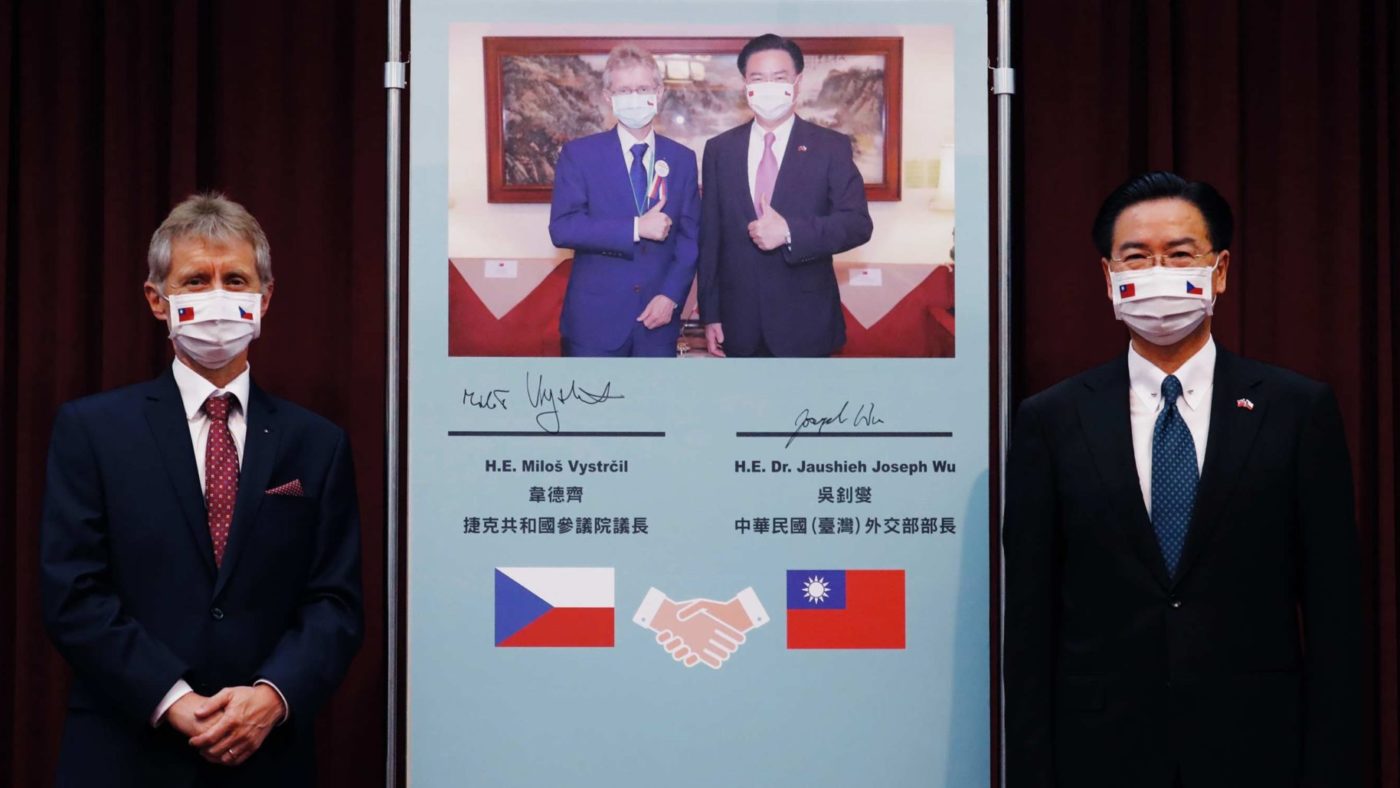Last week the President of the Czech Senate, Milos Vystrcil, stood before Taiwan’s parliament and, with echoes of John F Kennedy in Berlin 57 years ago, said: “I am Taiwanese”. “Kennedy said freedom is indivisible,” Vystrcil added. “And when one man is enslaved, all are not free.”
Such a visit and such a speech are absolutely right – and long overdue. For too long Taiwan, one of Asia’s most vibrant democracies, has been sidelined by much of the free world out of fear of China. Now, finally, democrats are starting to stand up.
The 90-member Czech delegation’s visit was predictably met with fury and threats from Beijing. But instead of the usual kowtowing and apology that we may have seen in the past, European leaders stood firm. The Czech foreign minister summoned the Chinese ambassador to Prague to protest at the threats, and at a press conference alongside China’s foreign minister Wang Yi in Berlin, Germany’s foreign minister Heiko Maas said he had spoken by phone with his Czech counterpart and stood in solidarity with them. To Wang’s warning that the Czechs would pay “a heavy price” for their action, Maas responded: “We as Europeans act in close cooperation — we offer our international partners respect, and we expect the exact same from them. Threats don’t fit in here.”
Even before the visit took place, over 68 European Parliamentarians signed a statement supporting the visit and condemning Beijing’s attempts to put pressure on the Czechs to change their mind.
The Chair and Vice-Chair of the European Parliament’s Delegation for Relations with the People’s Republic of China, Reinhard Bütikofer and Maria Spyraki, wrote to the Chinese ambassador to the EU, reiterating that “EU Member States and Parliamentarians in particular have every right to develop economic, cultural and other relations with Taiwan free of PRC interference”. They said they “regret” what they called “the increasingly bellicose attitude which your government is displaying”.
This show of courage by European politicians is a sign of two things.
First, that Beijing’s so-called “wolf-warrior” diplomacy – of aggressive threats and bullying of critics around the world – is counter-productive. Whereas in the past western leaders too often put short-term trade deals ahead of concern for human rights, now they are waking up to Beijing’s confrontational approach. Now even the EU’s High Representative for Foreign Affairs and Security Policy, Josep Borrell, observes that China is more “assertive,” “expansionist” and “authoritarian”. He called on Europe to “correct” the imbalances in its relationship with this “new empire”.
Second, of course is that after the imposition of a new draconian national security law in Hong Kong it is dawning on policymakers that China may not stop there. There is a growing realisation that Xi Jinping’s stated aim of reunification with Taiwan may be pursued more rapidly and less peacefully than previously imagined – and that if China further intensifies its threats to Taiwan, the free world itself is endangered. Hong Kong was until recently described as the “front line” in the fight for freedom, but that front line may now be shifting to Taiwan. As Taiwan’s President Tsai Ing-wen said recently, the island stands “increasingly on the front lines of freedom and democracy”.
That is why the Czech delegation’s visit to Taiwan is so timely and significant, and why European solidarity with the Czechs is so vital.
Indeed, where the Czechs have led, others must now follow. The likes of House of Commons speaker Lindsay Hoyle and the Speaker of the US House of Representatives Nancy Pelosi, should begin planning their own visits, as should the President of the European Parliament David-Maria Sassoli, and parliamentarians from other Western democracies.
There is a limit to this kind of thing though. Full, formal diplomatic recognition of Taiwan would at this stage be a dangerous provocation too far. The free world should be careful not to provoke a war. But we should be ready to stand with Taiwan in the event of one. And we should signal our moral support by undertaking every possible step stopping short of de jure recognition.
That should include ending the ban on Cabinet-level ministerial visits, inviting Taiwan into as many multilateral fora as possible and increasing every level of engagement. It should include strengthening our trading relationship, and working together to promote freedom and human rights around the world. It could include inviting President Tsai – a true democrat – to the capitals of the free world. As Jerome Cohen, one of the world’s leading China scholars, put it recently, “new forms of imaginative links with Taiwan must be developed”.
Taiwan has been exemplary in its handling of the Covid-19 pandemic, despite being ignored and marginalised by the World Health Organisation (WHO), under pressure from Beijing. It has been vocal in promoting human rights beyond its borders, including holding two conferences last year on religious freedom around the world, both of which were addressed by President Tsai, who then appointed a Special Ambassador for International Religious Freedom. Taiwan’s defence of Hong Kong’s democracy movement and assistance to Hongkongers fleeing repression in their city is second to none.
Taiwan is so clearly a friend, an ally, indeed a part of the free world – and is now a frontier for us all. It is therefore in all our interests to deepen our relationship with Taiwan, to make it clear to Beijing that our leaders decide whom they will visit based on our interests not China’s, and that when push comes to shove, we will defend freedom.
Click here to subscribe to our daily briefing – the best pieces from CapX and across the web.
CapX depends on the generosity of its readers. If you value what we do, please consider making a donation.


